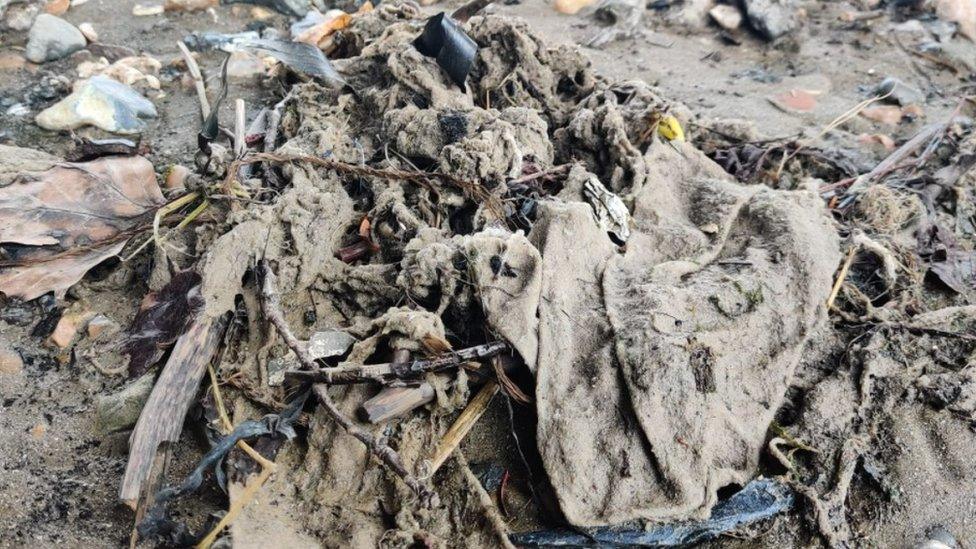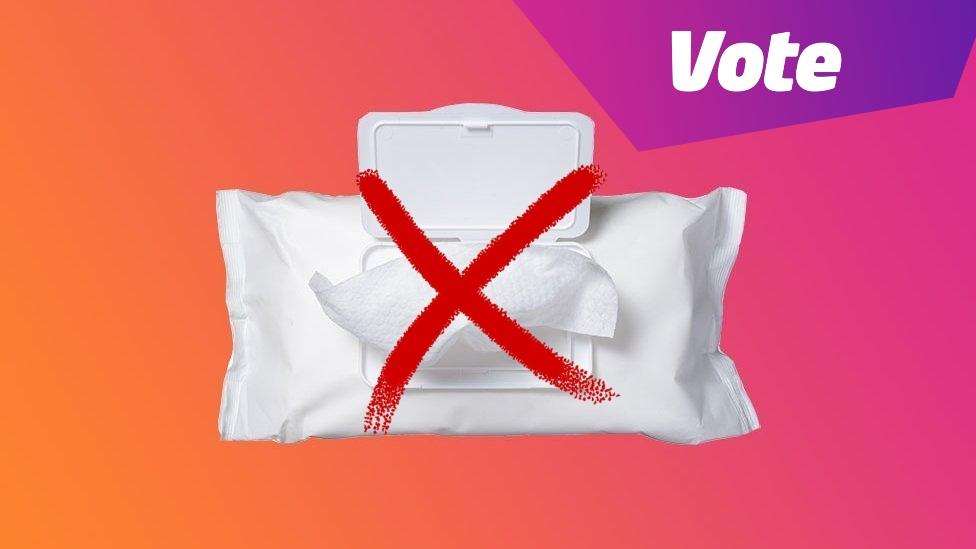Plastic wet wipes ban planned in England to tackle pollution
- Published
- comments

Wipes flushed down the toilet in London are sometimes found on the capital's riverbanks
Wet wipes which contain plastic will be banned in the UK says the government minister in charge of environmental issues.
It's because they cause huge blockages in drains and waterways when people flush them down the toilet.
Many wet wipes are not designed to be flushed as they contain plastic fibres which do not break down in water, like toilet paper does.
It is part of a big government plan to improve the quality of Britain's water, as experts say none of the UK's rivers are clean.
Mounds of wet wipes reshaping the River Thames
Some companies, including Boots and Tesco, have already stopped the sale of wet wipes which contain plastic.
Environment minister Therese Coffey has told BBC News that the ban on plastic-based wipes should come into force in the next year following a debate amongst experts.
The Welsh government put plans in place for a ban on plastic in wet wipes, but it has not yet been properly introduced.
Meanwhile, the Scottish government has held talks about a possible ban but has not taken further action.
All the things you didn't realise you need to know about fatbergs
But people who oppose the Conservative government, including the other political parties like Labour, the Liberal Democrats and the Green Party, all say this proposed ban is too late and that they should have taken action years ago.
Environment charity River Action UK also said the government had been slow to act and had allowed rivers to "fill up with untreated human effluent [waste] and toxic agricultural pollution".
Wet wipes flushed down toilets cause 93% of sewer blockages called fatbergs.
- Published2 November 2021

